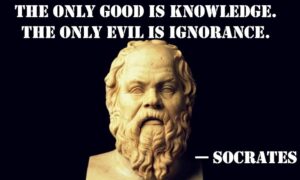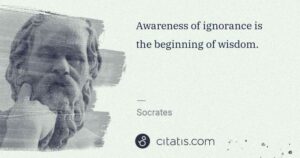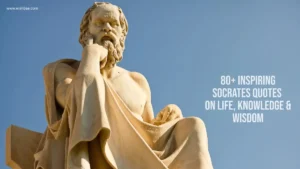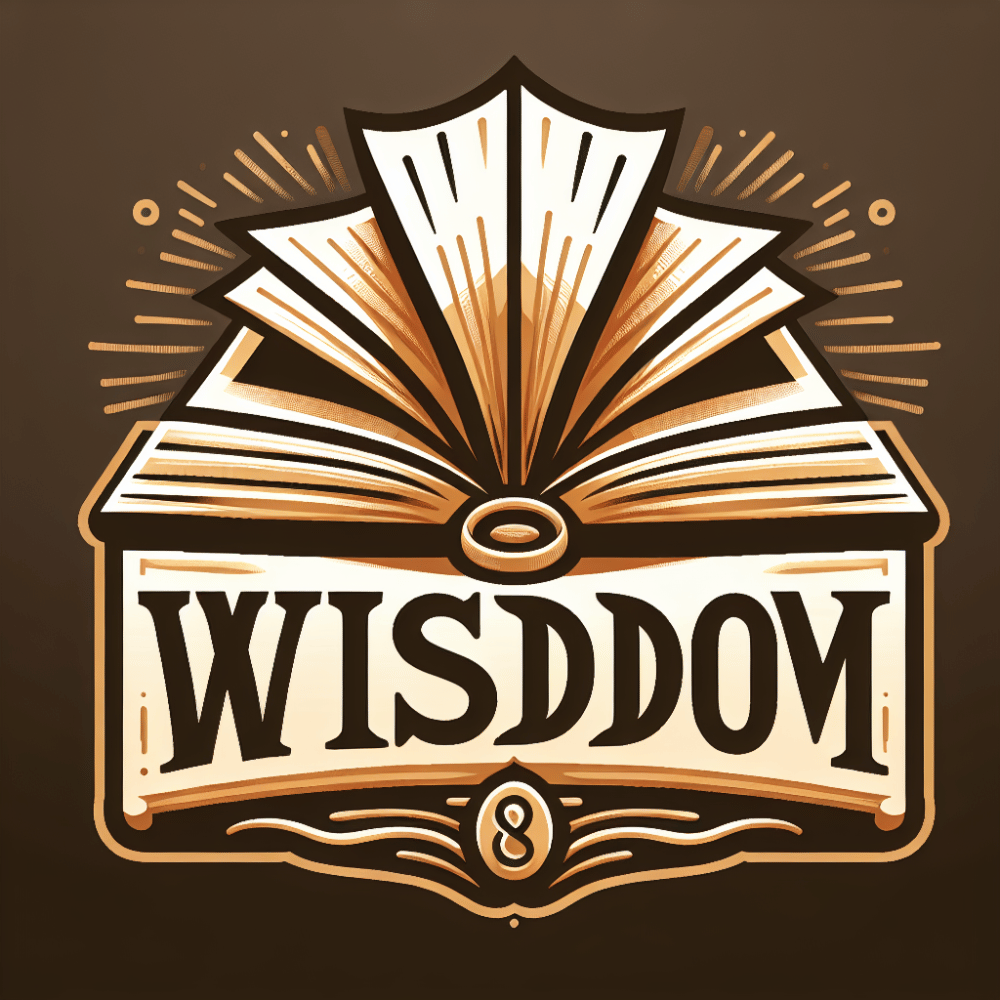 Socrates, the ancient Greek philosopher renowned for his wisdom and method of inquiry, left a profound legacy that continues to influence philosophical thought and intellectual discourse. This article explores Socrates’ teachings on knowledge and ignorance, examining their relevance in the modern era and offering insights into how his philosophical principles can guide individuals in navigating complexities and seeking truth.
Socrates, the ancient Greek philosopher renowned for his wisdom and method of inquiry, left a profound legacy that continues to influence philosophical thought and intellectual discourse. This article explores Socrates’ teachings on knowledge and ignorance, examining their relevance in the modern era and offering insights into how his philosophical principles can guide individuals in navigating complexities and seeking truth.
Understanding Socrates’ Philosophy
Socrates’ philosophical approach centered around the pursuit of knowledge through critical thinking, self-examination, and dialogue. His method, known as the Socratic method, involved asking probing questions to challenge assumptions, uncover deeper truths, and stimulate intellectual inquiry.
The Nature of Knowledge and Ignorance
- Socratic Paradox: Socrates famously proclaimed, “I know that I know nothing.” This paradoxical statement reflects his humility and acknowledgment of human limitations in understanding absolute truth.
- Definition of Ignorance: According to Socrates, ignorance (amathia) is not simply a lack of knowledge but a state of unawareness about one’s own ignorance. He believed that recognizing our ignorance is the first step towards acquiring genuine wisdom.
Socratic Dialogues and Inquiry
- Elenchus: Through Socratic dialogues with fellow Athenians, Socrates aimed to expose contradictions in their beliefs and encourage them to critically examine their assumptions. His method emphasized the importance of questioning and reasoning in the pursuit of truth.
- Irony and Humility: Socrates’ use of irony and his humble approach to knowledge challenged the prevailing dogmas of his time, advocating for intellectual honesty and a willingness to admit uncertainty.
Applying Socratic Teachings in the Modern Age
- Critical Thinking Skills: Embracing the Socratic method cultivates critical thinking skills essential for analyzing information, evaluating arguments, and making informed decisions in diverse fields such as education, law, and public policy.
- Ethical Decision-Making: Socrates’ emphasis on virtue (arete) and ethical living underscores the importance of moral integrity, accountability, and social responsibility in modern ethical frameworks and leadership practices.
Wisdom in Self-Examination
- Know Thyself: Central to Socrates’ philosophy is the injunction “Know thyself,” urging individuals to engage in introspection, examine their beliefs and values, and strive for self-awareness in pursuit of personal growth and authenticity.
- Philosophical Inquiry: Incorporating philosophical inquiry into everyday life promotes intellectual curiosity, open-mindedness, and a willingness to challenge assumptions, fostering a deeper understanding of complex issues and diverse perspectives.
Challenges and Opportunities
- Overcoming Confirmation Bias: Socratic inquiry encourages individuals to confront biases, preconceptions, and cognitive dissonance by seeking alternative viewpoints and considering evidence objectively.
- Promoting Dialogue and Understanding: In an increasingly polarized world, Socratic dialogue fosters constructive conversations, empathy, and mutual respect, bridging cultural divides and promoting social cohesion.
Embracing Socrates’ Legacy
- Educational Reform: Integrating Socratic principles into education systems promotes lifelong learning, intellectual rigor, and the development of critical thinking skills among students, preparing them to navigate a complex global landscape.
- Personal and Professional Growth: Embracing Socrates’ teachings fosters a commitment to intellectual humility, continuous self-improvement, and ethical leadership in professional endeavors and personal relationships.
Conclusion
In conclusion, Socrates’ teachings on knowledge and ignorance offer timeless lessons that resonate in the modern age, emphasizing the importance of critical inquiry, intellectual humility, and ethical awareness. By embracing the Socratic method and principles, individuals can cultivate a deeper understanding of themselves and the world around them, fostering intellectual curiosity, ethical decision-making, and a commitment to lifelong learning.

